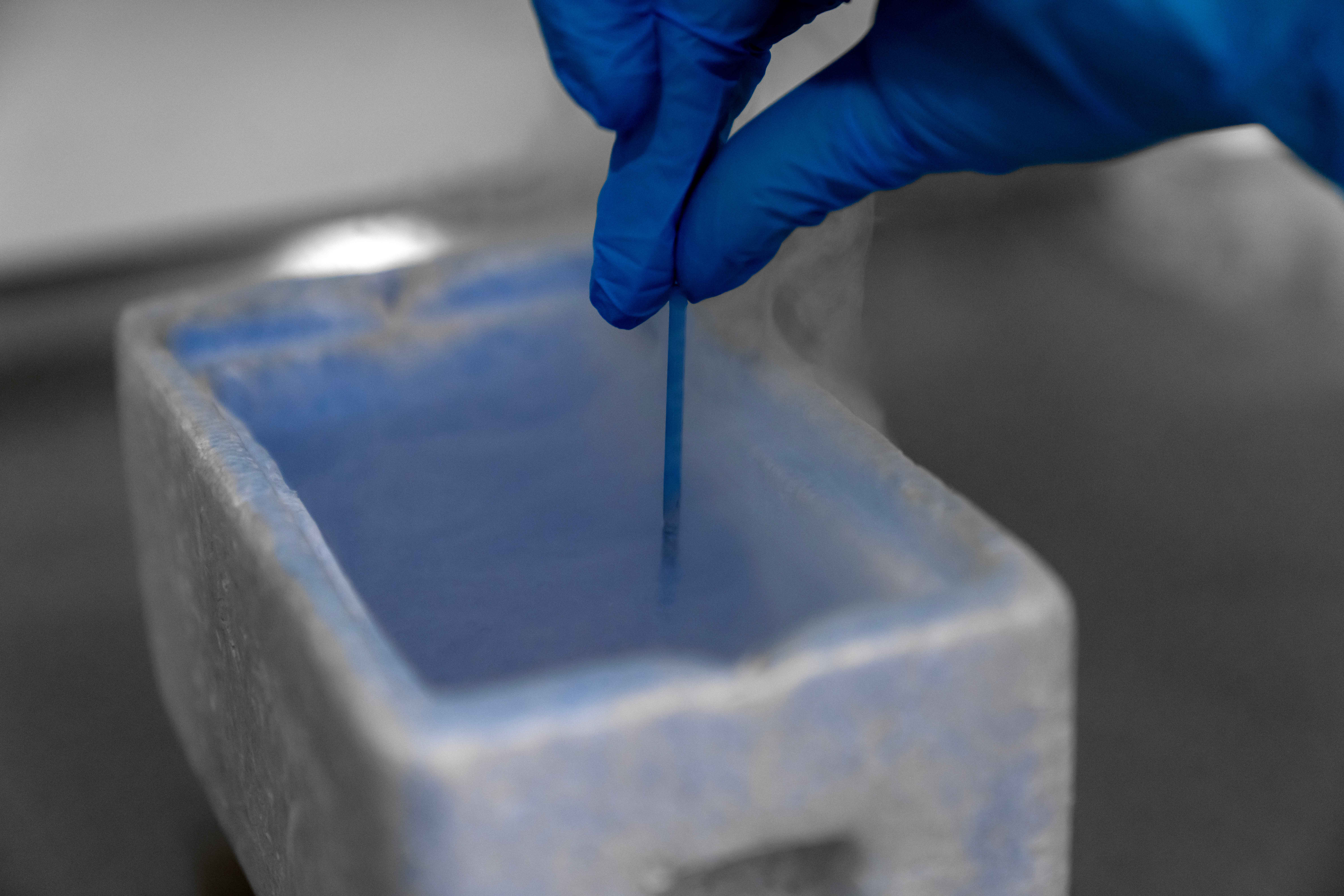Did you know that almost one out of every ten teenage girls has Polycystic Ovary Syndrome (PCOS)? Though PCOS might not appear that common, the vast majority of sufferers go undiagnosed for years [1]. This is especially problematic for teenage girls who are still getting used to their cycle, and then have to deal with PCOS symptoms like irregular cycles, weight gain, and acne. Given that irregular cycles are normal and expected in the first year or two of cycling, it can be difficult for teens to know which symptoms are “just part of puberty” versus those that need to be discussed with their doctor.
No matter their body type, most women with PCOS are well aware that their condition negatively affects their metabolism and overall health. One recent study by Polish and Italian researchers sought to address these very issues with the simplest of medicines: food. The study, known hereafter as “Mizgier, M. et al.,” put a group of teenage girls of varying body types with PCOS on an anti-inflammatory Mediterranean diet to see whether it would improve their overall nutrition and metabolic health [2].
While the researchers found promising results with a Mediterranean diet, there were some points of contrast with other studies on diet and PCOS. In this article, we’ll explore Mizgier, M. et al.’s results, and we’ll take a look at how their prescribed diet was similar to (or different from) other studies on diet and PCOS.
32 girls with PCOS followed an anti-inflammatory diet for 12 weeks
Mizgier, M. et al. studied 13 girls with a body mass index (BMI) classified as overweight or obese, and 19 girls who had a BMI classified as lean. These 32 girls participated in the study for 12 weeks, during which they had regular meetings with both a dietician and a gynecologist. Participants were given detailed protocols to follow an anti-inflammatory diet, which is largely based on the principles of the Mediterranean diet. They had routine check-ins with the dietician to ensure they were properly following the diet, and they kept a food diary for a portion of the study.
The girls were given a variety of tests to get a picture of their health both before and after the diet intervention study. Blood tests revealed their glucose and insulin levels, insulin resistance and beta-cell function scores, and hormonal testing focused on inflammation. They also took a KIDMED questionnaire, which is used to assess diet quality in relation to a Mediterranean diet. Finally, their weight and BMI scores were recorded.
What is an “anti-inflammatory” diet?
The anti-inflammatory diet generally emphasized two types of foods—plant protein and fiber. Participants were instructed to have at least three servings of legumes per week, and two servings of vegetables per day, plus one serving of nuts every day. They were to restrict the amount of eggs, poultry, and red meat they ate to just a few instances per week, and were only allowed two servings of dessert per week. They were also instructed to have one or two servings of breads or cereals per meal, and three servings of fish per week. Finally, they were also recommended to consume anti-inflammatory spices and herbs like cinnamon, ginger, garlic, and black pepper, and to use olive oil as much as possible.
Study participants ate more veggies, healthy fats, and fiber…
The researchers found success in many of the categories they tested. The results of the KIDMED showed that participants improved significantly in their adherence to the Mediterranean diet, which researchers expected. They also found an increase in the calories consumed of vegetable protein, polyunsaturated fats (like that found in nuts or fatty fish), and fiber in the girls’ diets.
…and lost weight and lowered inflammation markers
Girls who fell into the overweight or obese group also lost weight, dropping from an average BMI of over 30 to 29. Inflammatory markers in the blood fell for girls of both body types, with the overweight and obese girls also showing lower fasting insulin levels.
In their discussion of the study results, the researchers explained that they chose the Mediterranean diet specifically for its anti-inflammatory properties. Since inflammation is a hallmark feature of PCOS, the researchers posit that eating an anti-inflammatory diet long term will help PCOS sufferers decrease insulin resistance and thereby decrease inflammation.
Study participants only received anti-inflammatory diet for PCOS education
The Mizgier, M et al. study followed just 32 girls for only 12 weeks, and there was no discussion of other relevant lifestyle factors like exercise, stress, or sleep. Since each of these factors has significant impacts on inflammation, future research should address these areas, too.
The Mizgier, M et al. study didn’t limit carbs, but should it have?
How does the Mizgier, M et al. study stack up to other similar studies on the effects of diet on PCOS? A glaring inconsistency between much of the existing research and the Mizgier, M. et al. is that their study does not give any guidance on lowering carbohydrate intake. In fact, it requires participants to have breads or cereals (with no instruction on whether they should be whole-grain or otherwise) with every single meal.
Other research has found that having a diet with many refined carbs actually increases inflammation, which may even cause PCOS [3][4]. Another similar study of the Mediterranean diet took a different approach [5]. It separated participants into two camps—a low-fat Mediterranean diet and a low-carb Mediterranean diet—and the low-carb group experienced significantly more weight loss, lower insulin levels, better cholesterol labs, and more balanced hormones than the low-fat Mediterranean diet group.
Finally, other research has shown immense benefit in decreasing carb intake for women with PCOS [6]. Even a small reduction in carb calories makes a difference [7]. A high protein diet has also been shown to improve body weight composition and blood sugar for women with PCOS, and a meta-analysis (which compiles many studies on the subject), found that the diet with the greatest impact on reducing insulin resistance for women with PCOS is a high protein, low carb diet [8][9].
[Note: an in-depth analysis of all of these studies plus countless others can be found in Real Food for Fertility, which looks at how our diets can affect our fertility and health, including for those with PCOS.]
What diet is best for teens with PCOS?
So, if you or your teenage daughter is dealing with PCOS, what is the best diet to choose to help you achieve optimal metabolic health? It can be confusing to sift through what seems like conflicting research, but there is one factor that underlies all of these studies—the importance of eating real, whole food. Although Mizgier, M et al. did instruct its participants to consume a diet which wouldn’t be considered low carb (especially with bread or cereals at every meal!), it was ultimately a diet consisting of whole foods.
The study didn’t disclose what the participants were eating before they took part in the study. If they were eating largely ultra-processed foods (which make up about 73% of the average American diet), then changing to a Mediterranean diet was a huge improvement! Processed food is a massive driver of inflammation, after all.
That being said, you may receive maximum benefits from focusing on a lower carb and higher protein diet, with regular dietary fiber also included. Starting by increasing your intake of whole foods and decreasing your intake of ultra-processed foods could be a good first step if you usually follow a standard American diet.
Additional Reading:
My journey to find real treatment for PCOS
Listen: NW Podcast S2 Ep. 3: PCOS & Nutrition






